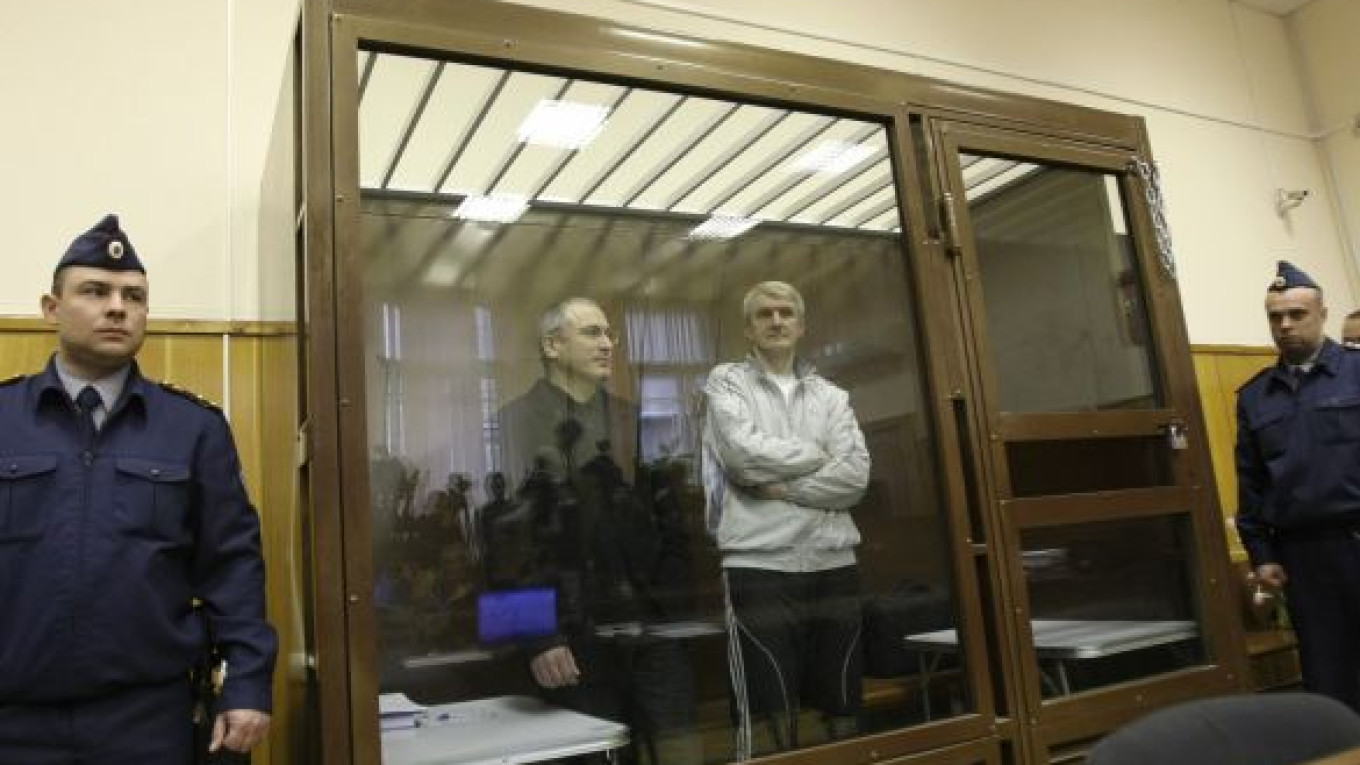Jailed tycoon Mikhail Khodorkovsky said in an interview published Monday that Russia could face a crisis within five years as lower economic growth rates leave the Kremlin with less oil money to ease social tensions.
Khodorkovsky, once Russia's richest man, was arrested in 2003 after falling foul of the Kremlin under then-President Vladimir Putin. His business empire, which produced more oil than OPEC member Qatar, was carved up and sold to state-controlled companies.
In his first major interview with the Russian media since his arrest, Khodorkovsky painted a bleak picture of Russia's development after the 2012 presidential election.
"There is a growing contradiction between the decreased potential of the unmodernized economy, the avarice of the bureaucracy and … the expectations of the population," Khodorkovsky told the Novaya Gazeta newspaper.
He said President Dmitry Medvedev's calls for modernizing the economy were doomed to failure because of the "complete criminalization" of the bureaucracy that would sabotage any real attempt at reform.
"Do you want my prediction? Until the thunder strikes, our elite will do nothing," said Khodorkovsky, who, followers say, is Russia's most prominent political prisoner. "The next crisis point will come in around 2015."
Khodorkovsky was sentenced in 2005 to eight years in jail for fraud and tax evasion. He is now on trial on new charges of money laundering and embezzlement for which prosecutors said last month that he should serve an extra six years in jail.
The Kremlin could not be reached for immediate comment as Medvedev was returning from a trip to the Far East.
After a decade-long boom, Russia's economy was hammered by the global economic crisis, contracting 7.9 percent in 2009, the worst annual contraction in 15 years and by far the worst hit among major emerging market peers such as China or India.
The $1.2 trillion economy is forecast to grow about 4 percent this year, though Khodorkovsky said there was little scope for further growth on the back of sales of raw materials, Russia's main exports.
"The potential for growth from natural resources has been exhausted," Khodorkovsky said, adding that sluggish rises in labor productivity would leave Russia behind rivals such as China and India.
Analysts are mixed over prospects for long-term Russian growth, which primarily depends on commodity exports.
He added that blossoming corruption among officials would put a drain on the Kremlin's shrinking resources, leading to rising prices for the population, of which 20 million live in poverty on incomes of less than 5,500 rubles ($180) a month.
Last week, Transparency International rated Russia joint 154th out of 178 nations in its Corruption Perceptions Index, along with Cambodia, Kenya and Laos.
Khodorkovsky has always said he is the victim of corrupt officials under Putin who feared his political ambitions and wanted to carve up his Yukos oil company, which was once widely held by U.S. and European emerging market investment funds.
But opponents say Khodorkovsky simply lost a battle for influence inside the Kremlin. Putin has accused Khodorkovsky of ordering the murder of his opponents, a charge Khodorkovsky's lawyers have dismissed as unfounded.


